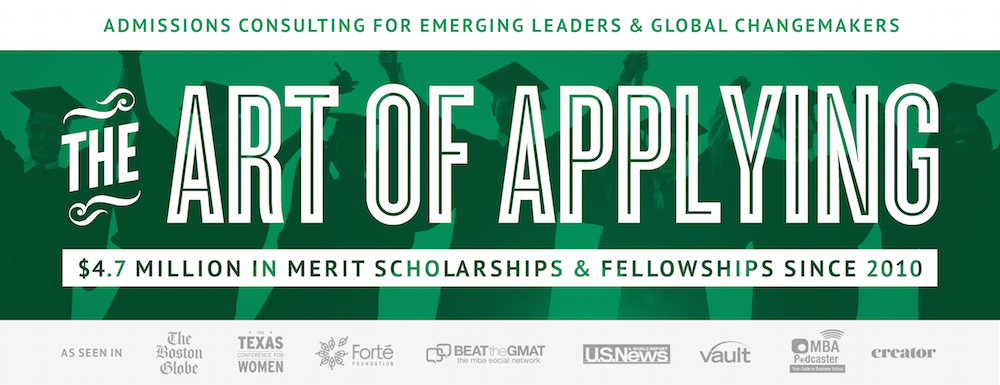-
Posts
99 -
Joined
-
Last visited
Kaneisha's Achievements

Espresso Shot (4/10)
39
Reputation
-
 Masters2021 reacted to a post in a topic:
Is it crazy to drop Columbia SIPA ($75k) to apply for Harvard MPP (HKS) next fall?
Masters2021 reacted to a post in a topic:
Is it crazy to drop Columbia SIPA ($75k) to apply for Harvard MPP (HKS) next fall?
-
 hanburger reacted to a post in a topic:
I'm Torn: Madison (La Follete) v. HKS v. Berkeley (GSPP) v. UCLA (Luskin)
hanburger reacted to a post in a topic:
I'm Torn: Madison (La Follete) v. HKS v. Berkeley (GSPP) v. UCLA (Luskin)
-
PartTimeStresser started following Kaneisha
-
 wcw reacted to a post in a topic:
Fletcher School - worth the debt?
wcw reacted to a post in a topic:
Fletcher School - worth the debt?
-
 Marie21 reacted to a post in a topic:
Fletcher School - worth the debt?
Marie21 reacted to a post in a topic:
Fletcher School - worth the debt?
-
Kaneisha started following Fletcher School - worth the debt?
-
Hi @Marie21, just popping in to say thanks for the tag, but unfortunately I don't have the time right this second to give a thoughtful response as it is peak application season. However, I wanted to at least let you know I did see your post. I didn't read it in its entirety, but I will reiterate what I often tell clients worried about finances. I do not recommend attending any graduate program from which you'll graduate with a debt load equal to more than a reasonable estimate of your first year's salary out of school. I graduated with six figures of student loan debt that ballooned to $150,000+ while I struggled as an entrepreneur and author (totally my choice, and I acknowledge that), and it was arduous paying it off (I paid off my loans in seven years by sending in huge payments whenever I got clients). I hope that tiny tip was helpful, and if not, I apologize and wish you luck with making your decision.
- 6 replies
-
- fletcher school
- international development
- (and 8 more)
-
 yoh_rrg reacted to a post in a topic:
WWS Policy Memo Tips?
yoh_rrg reacted to a post in a topic:
WWS Policy Memo Tips?
-
 3dender reacted to a post in a topic:
STOP FREAKING OUT: these programs are not as competitive as you think
3dender reacted to a post in a topic:
STOP FREAKING OUT: these programs are not as competitive as you think
-
 Oh no! reacted to a post in a topic:
STOP FREAKING OUT: these programs are not as competitive as you think
Oh no! reacted to a post in a topic:
STOP FREAKING OUT: these programs are not as competitive as you think
-
 Surfbordt reacted to a post in a topic:
JD after MPP, or vice versa
Surfbordt reacted to a post in a topic:
JD after MPP, or vice versa
-
 Surfbordt reacted to a post in a topic:
Don't take on debt
Surfbordt reacted to a post in a topic:
Don't take on debt
-
 thetons8785 reacted to a post in a topic:
STOP FREAKING OUT: these programs are not as competitive as you think
thetons8785 reacted to a post in a topic:
STOP FREAKING OUT: these programs are not as competitive as you think
-
Kaneisha started following Want to get an MPA/MPP , HKS MPA2 Academic Prerequisite , SAIS or FLETCHER and 3 others
-
@Damis I would love that!
-
@Damis you are welcome! I applied back when you could still do the Harvard MPA/MBA, so once I was admitted to HBS, I simply made a call and asked to be switched over to the MPA2. Note that when I first called, someone told me "You can't do that," which I knew was incorrect, so I just called again and spoke to someone else. These strange things happen occasionally in large, busy institutions, which is why I always suggest sending in questions and requests in writing and to the actual decision-maker. I suggest folks fulfill the requirement by taking graduate-level courses at a reputable university (does not have to be super-prestigious; just nationally accredited and not a for-profit school). Make sure you take the type of courses that HKS lists. Don't just take courses that "sound" like what HKS would want you to take. Refer to that same link we both linked to. Since you're applying to Wharton, Tuck, Stanford, and/or MIT, at the same time as you're applying to HKS, you simply apply directly to the MPA2.
-
Hi @Ken528 and @Damis, As Damis mentioned, after this year's deadline, you should email (I always recommend emailing over calling so that you have a written record of what you were told) HKS Admissions to get a definitive answer on your eligibility. Clearly spell out how many/which graduate-level courses you have completed and how many years of full-time professional work experience you will have at time of your application. Currently, the MPA2 requires that you have 3 years full-time work experience at time of application and 4 qualifying graduate-level courses. Ken, from your post, it sounds like you're hoping to sub in the Higher Civil Services exam for those 4 courses. In my opinion, this will not meet the qualification. It was unclear from your post how many years of full-time professional work experience you will have when you apply, but there isn't much (if any) flexibility there either. Damis: the course and work experience eligibility has been around for at least 3 years, as I've been working with clients to apply to the MPA2 for the last 6 (and also was an MPA2 myself). Best of luck to both of you! Kaneisha
-
As a graduate of what is now known as the HBS 2+2 program (and a professional on the advising side of admissions), I highly recommend you opt for Fletcher's Map Your Future program as well. Every $10,000 in aid you can get will offset approximately $100/month in student loan repayments over a 10-year repayment period. Like @went_away said, you'll also benefit from having work experience as well, so it's almost like a multiplier effect.
-
I would chime in here and say that rather than thinking that the policy programs are not as competitive as you think, the people here at Grad Cafe—especially the people engaging a lot, asking lots of questions, and/or answering questions—are much more prepared than most other applicants for the challenge of gaining admission. Lots of people apply to graduate school, and especially policy school, with a "Let me throw my hat in the ring and just see if I'll get in" approach, and don't end up putting their best candidacy forward. The GradCafe'rs approach the application process with more intention, organization, and knowledge of the process and why they are going to grad school. Basically two sides of the same coin but from a slightly different perspective. Breathe, everyone! If you put your best effort forward (and get quality information from the schools and people you trust on here or elsewhere), you will end up exactly where you belong.
- 16 replies
-
- grad school
- admissions
-
(and 3 more)
Tagged with:
-
Hey @kamilas and @matt99, Columbia SIPA's admissions blog has a few tips on how to handle the video essay. You can access it here. One tip I want to impress upon you and other applicants is to make sure you have good lighting. Your light source should be facing your face and behind your camera. So you should be facing a window or desk lamp, not sitting with your back to a window or your light source. If you sit with your back to the window, your face will be a dark silhouette. Look out for any distracting things in the background--like an overflowing laundry hamper or a poster in the background that has text that is almost legible but just not quite. Hopefully my team and I can pump out a blog post with more tips for you all before it's too late! Best of luck!
- 61 replies
-
Hi @matt99, I really like the idea of a Harvard MPP/MPA and an MUP. I'm a Harvard MBA & MPA, I have a Harvard MUP/MArch on my team, and we currently have a client applying to the MPP/MUP at Harvard. While I only took one class at the GSD (it was a case-based Economics course that used Urban Planning cases), I really enjoyed it, and have since seen the amazing success of two of my friends who graduated from GSD and now teach there. While it might be true that the MPA produces more administrative/managerial people than policy analysts (I don't know if this is actually true), you can take almost whatever classes you want as a Harvard MPA, so if you want to veer toward more policy analysis or skills-based courses such as negotiations, you can do that. As a wordsmith and advocate-type who prefers to lean into my strengths, I focused most of my MPA coursework on communication and leadership courses, such as "Public Narrative," "Arts of Communication," and "Writing for Public Policy." I suggest you reach out to current and recent MUP/MPP students via LinkedIn to chat with them briefly and get their perspective on the dual degree. I hope that you'll be wowed by how open people are to sharing their thoughts! Best of luck on deciding what to do next!
-
Hi @mpamppquestions, In addition to the great advice you've already received, I would add that if you aren't able to bring your GRE Quant score up to be closer to CMU's scores (hopefully you will!), I recommend you take some supplemental coursework at a community college, through a university's self-paced online courses, or if absolutely necessary, via Coursera or something similar. The classes I recommend are: Calculus, Statistics, Macroeconomics, and Microeconomics. Considering you probably don't have time to take the equivalent of a semester's worth of classes, prioritize Statistics and Microeconomics (if you haven't already taken them in college). I often recommend this to my clients with low GRE scores. Best of luck!
-
Hi @grelover, According to the (imperfect) GRE to GMAT converter, your score would be about a 650 on the GMAT. Without knowing your GPA or other stats and background information, I would say that you should aim for a slightly higher score (GMAT equivalent of 700 or better) to be maximally competitive for a Top 20-ranked MBA program. As for Ms Computer Science-related programs, you should aim for a Quant score that is in the 85th percentile or better.
-
Kaneisha changed their profile photo
-
@MD guy is mostly right. It's not impossible but it certainly isn't as easy to break into banking or consulting when you're several years out. Even with that said, if I reenter the "work for other people" world, I'm a better fit for a pre-IPO well-funded startup, a corporate marketing role, or human capital role. But you are right! I definitely have the "insurance" that comes with having a Harvard MBA. That's why I impress upon the policy-only candidates to minimize their student loan debt!
-
@aqua_bro eh...I can't really blame anyone but myself (and perhaps the American education system as a whole). I was the one who signed on the dotted line as a clueless 23-year-old for that much student loan debt. Sometimes, I wonder how much better my finances and life in general might be without all this debt, but I also wonder if I was just vulnerable and would have gotten myself wrapped up in some other kind of financial ruin (e.g. buying a big house I couldn't afford because that's the grownup thing to do). I could have chosen to go to work for a big company after graduation but I chose not to. That would have helped me pay down the debt much more quickly than working for myself. Life is full of tradeoffs. It's important you do your research to understand the obvious and less obvious consequences of those tradeoffs. I recommend HKS to anyone who is clear on why they are going and who can graduate with a reasonable amount of student loan debt, whether it's because they got a scholarship, have a ton of savings, are being supported by family, etc. Stay encouraged but also well researched and cautious!
-

Anyone not accepted into Any program?
Kaneisha replied to LLCoolJ1585's topic in Government Affairs Forum
I'm happy to see confirmation of my advice! @botbot22 congratulations on turning things around! -

Anyone not accepted into Any program?
Kaneisha replied to LLCoolJ1585's topic in Government Affairs Forum
Whenever I get an inquiry from a prospective client who was rejected from every school, nearly every single time the main problem was one application weakness (low GPA, low years of work experience, or low GRE) combined with mediocre essays. I have rarely seen an applicant with stellar essays get rejected from every school when they apply with "good enough" scores in other areas. I suggest having some friends, colleagues, or trusted contacts review your essays (or entire application for that matter) to see if they agree with my theory and if it applies in your case. -
@CCD2016, you've already gotten some good advice here. I just wanted to pop in and give an actual number (many people overestimate the earning potential right out of policy school as many joint degrees and people who go into the private sector skew the numbers upward). I recommend you take on no more than $40,000 - $50,000 in student loan debt for the entire graduate degree. If you can really keep it down to $25,000, you're doing great and go for it! I also recommend applying to external (not school-based) scholarships and fellowships to bring that number down even more. Best of luck!



